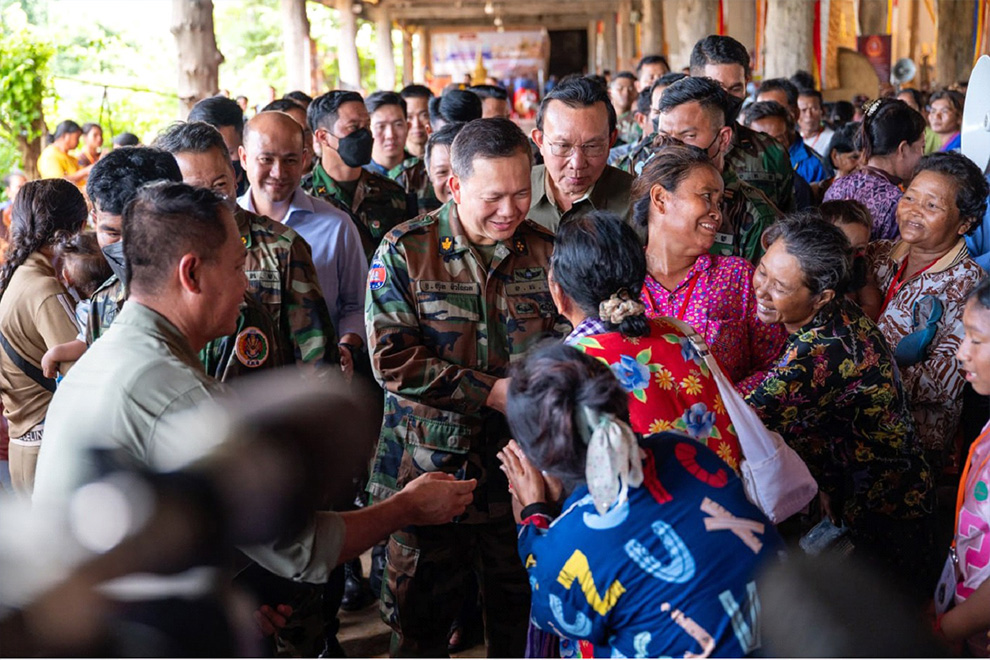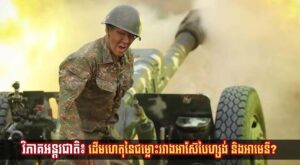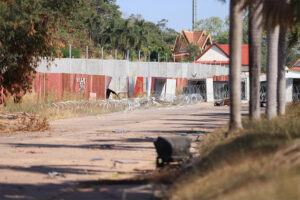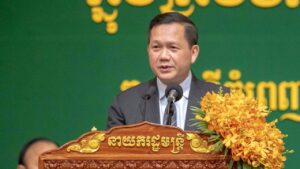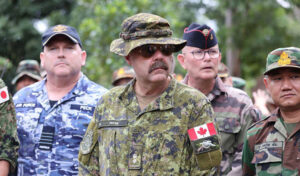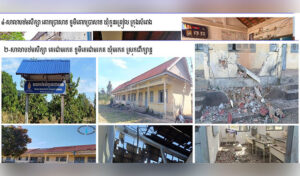Opinion: The Red Line Is Drawn: Thailand’s Violation of International Norms
Prime Minister Hun Manet meets with Cambodians who were displaced by border tensions in Preah Vihear province last month. Supplied
The Phnom Penh Post | The red line has been drawn — and Cambodia will not allow it to be crossed.
Prime Minister Hun Manet’s powerful message on July 22 serves not just as a stern warning to Thailand, but as a clear reaffirmation of Cambodia’s unwavering stance on territorial sovereignty, peaceful coexistence and respect for international norms. As tensions reignite along the Cambodia-Thailand border — particularly in the Mom Bei area in Cambodia’s Preah Vihear province — Thailand’s actions threaten to unravel regional stability and push diplomatic boundaries beyond their limits.
Once again, Thailand has chosen provocation over cooperation. Road construction in contested areas, unilateral mine-clearing operations and baseless allegations against Cambodia mark a pattern of calculated escalation. The recent claim that Cambodia secretly planted landmines — leading to injuries of Thai soldiers — is not only unsubstantiated, but it also reeks of political opportunism and narrative manipulation. As Prime Minister Hun Manet aptly put it, Thailand is attempting to “spit blood on others” — blaming Cambodia for the consequences of its own reckless adventurism.
Let us be unequivocal: the areas in question remain under dispute. Under international law, no country has the right to take unilateral action in contested zones. Any construction, deployment or accusation must be subject to mutual agreement, conducted in good faith and aligned with established bilateral mechanisms. Thailand’s continued defiance of these norms not only undermines trust but violates the very spirit of peaceful resolution that ASEAN and the global community stand for.
Moreover, Thailand’s recent threat to take this issue to the UN reeks of hypocrisy. The same Thailand that now appeals to the UN refuses to accept the jurisdiction of the International Court of Justice (ICJ), a principal judicial organ of the UN that has already ruled in Cambodia’s favour in previous border disputes. This double standard is not only intellectually dishonest — it is diplomatically corrosive.
It must also be emphasised that Cambodia is a responsible party to the Ottawa Convention. It has never laid new anti-personnel mines, and has worked tirelessly to clear over 1.2 million mines — an effort that has saved countless lives and stands as a testament to its humanitarian commitment. To accuse Cambodia of reversing this hard-earned progress is to ignore decades of painstaking work and international cooperation.
Behind Thailand’s accusations lies a dangerous strategic play. As domestic political forces shift in Bangkok, external scapegoating has become a convenient tool to distract from internal weaknesses. Cambodia will not be used as political collateral in Thailand’s internal power games.
The Cambodian government, under Prime Minister Hun Manet’s leadership, remains committed to a peaceful, diplomatic resolution. But peace must not be mistaken for passivity. Cambodia stands ready — politically, legally and defensively — to protect every inch of its land.
To the Thai leadership: do not test Cambodia’s patience. The red line has been drawn. It will not be moved.
Roth Santepheap is a geopolitical analyst based in Phnom Penh. The views and opinions expressed are his own.

